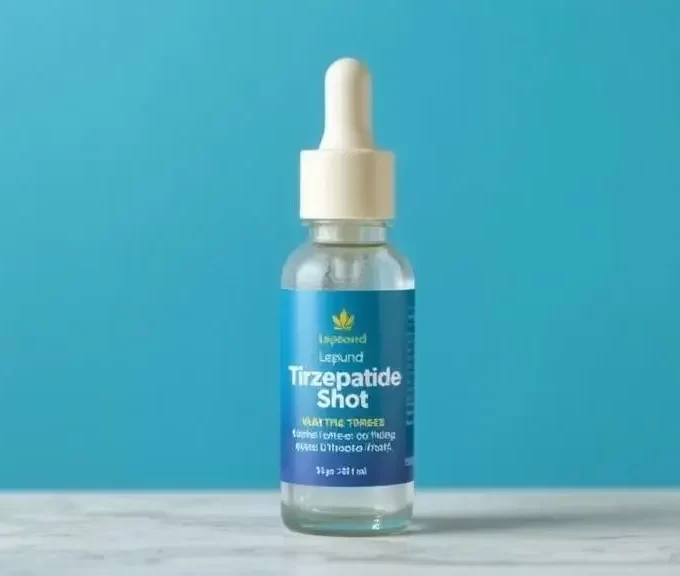In 2025, medically supervised weight loss is more advanced than ever. With the rise of injectable GLP-1 and GIP agonists, individuals struggling with obesity and metabolic issues have access to powerful, science-backed tools. Wegovy and Zepbound are the two most prominent FDA-approved medications in this category.
But alongside these giants, a lesser-known name is trending across forums and search engines: Wepbound. Promoted as a more affordable and accessible alternative, Wepbound is raising eyebrows and questions.
Is it a legitimate option or just a risky shortcut? Let’s break down the differences.
What Is Wepbound?
Wepbound is a product currently being promoted as a weight management solution. It claims to help with weight loss by suppressing appetite and supporting better blood sugar control, a mechanism similar to GLP-1 receptor agonists used in approved medical treatments.
However, it differs dramatically from FDA-approved medications in the following ways:
- It is not FDA-approved
- The active ingredient is undisclosed.
- There are no published clinical trials.
- It is not regulated or prescribed by doctors.
- It is available online without a prescription.
In essence, Wepbound is a non-verified supplement, packaged to look like a legitimate medical solution but without the scientific validation or regulation.
How Do Medically Approved Injections Like Wegovy & Zepbound Work?
Medications used in clinical settings are designed to mimic hormones that naturally occur in the gut. These hormones signal to the brain that you’re full, help manage blood sugar levels, and regulate digestion. This combination leads to reduced calorie intake and better metabolic control.
Medications like Wegovy (semaglutide) and Zepbound (tirzepatide) are designed to act like gut hormones. They work by:
- Mimicking GLP-1 or GLP-1 + GIP
- Reducing appetite by signaling satiety to the brain
- Slowing gastric emptying
- Stabilizing blood sugar
These effects help patients consume fewer calories and regulate insulin more effectively.
What Makes Zepbound Unique?
Zepbound targets two receptors (GLP-1 and GIP), giving it a dual-action mechanism that often results in greater weight loss compared to GLP-1-only medications like Wegovy.
Real Clinical Data
- Wegovy: Patients lose up to 15% of body weight
- Zepbound: Patients lose up to 22.5% of body weight
Unlike Wegovy or Zepbound, Wepbound is not an FDA-approved medication. Its formula is not disclosed, and no clinical trials have been published validating its claims. Sold online without medical oversight, Wepbound bypasses essential safety protocols. This creates a high-risk scenario, especially for patients with underlying conditions like diabetes or cardiovascular disease.
From a medical perspective, unregulated weight loss products raise red flags due to the potential for adulterants, inconsistent dosing, and misleading marketing. Without peer-reviewed data, it’s impossible to predict Wepbound’s efficacy or its side effects.
Wepbound vs. Medically Approved Alternatives: A Direct Comparison
| Feature | Wepbound | Wegovy | Zepbound |
|---|---|---|---|
| FDA Approved | No | Yes | Yes |
| Clinical Trials | None | Multiple | Multiple |
| Active Ingredient | Unknown | Semaglutide | Tirzepatide |
| Mechanism | Assumed GLP-1 mimic | GLP-1 Agonist | GLP-1 + GIP Agonist |
| Supervision Required | No | Yes | Yes |
| Purchase Location | Online only | Prescription only | Prescription only |
| Safety Profile | Unknown | Documented | Documented |
How Safe Is Wepbound?
There is no clinical safety data available on Wepbound. Without transparency about ingredients, dosage, or testing, it’s difficult to determine the risks. Unregulated products that are marketed to mimic medical drugs often carry potential dangers:
- Unknown interactions with other medications
- Unpredictable side effects
- Quality and dosage inconsistencies
- Misleading labeling.
Unregulated supplements marketed as pharmaceuticals often carry serious risks such as:
- Allergic reactions
- Blood sugar instability
- Cardiovascular strain
- Gastrointestinal issues
- Liver toxicity
Using any unverified product without medical guidance can be dangerous, especially for individuals with underlying health conditions such as diabetes, cardiovascular issues, or hormonal disorders.
What Makes Medical Treatments More Trustworthy?
Medically approved injections go through years of research and strict regulatory review before they are released to the public. Their benefits and risks are outlined clearly, and their performance is measured in large-scale human trials.
These medications also come with:
- Structured dosing protocols
- Ongoing physician oversight
- Transparent side effect profiles
- Long-term efficacy data
The best medication isn’t just about numbers—it’s about what works best for your body, your risk profile, and your goals. Zepbound may offer faster results, but Wegovy remains a solid option for long-term cardiovascular support. For those who qualify, either drug can be life-changing—when paired with a balanced diet, physical activity, and regular medical follow-up.
Patients are strongly encouraged to consult a licensed healthcare provider or endocrinologist before starting any injectable therapy. Only a qualified expert can tailor treatment based on medical history, comorbidities, and lifestyle needs.
Why People Are Searching for Alternatives Like Wepbound
Many people turn to non-prescription weight loss options for one of the following reasons:
- High cost of approved treatments
- Difficulty accessing a prescription
- Curiosity about “natural” or “less intense” alternatives
- Misleading marketing or influencer endorsements
While these motivations are understandable, choosing untested treatments increases the risk of wasting money or, worse, harming your health.
Which Weight Loss Drug Is Best for Your Goals?
Here’s a simplified breakdown:
| Goal | Best Option | Why |
| Fastest Weight Loss | Zepbound | Dual-agonist for higher efficacy |
| Long-Term Maintenance | Wegovy | Long safety track record |
| Most Affordable | Wepbound | Cheap but unverified and risky |
| Safest for Health Risks | Wegovy/Zepbound | Backed by trials, medical oversight |
What a Real Patient Experience Looks Like
Sarah, 42, had tried various diets and supplements for PCOS-related weight gain. After getting prescribed Zepbound, she noticed reduced appetite within a week and began losing weight steadily without extreme hunger or crash dieting.
How Long Until You See Results?
Understanding the timeline for results is essential, especially when setting realistic expectations. Weight loss medications like Wegovy and Zepbound follow a gradual, evidence-based progression, while Zepbound’s effects remain speculative due to a lack of clinical validation.
For Wegovy and Zepbound:
- Weeks 1-2: Appetite suppression begins
- Week 3-4: Small changes on the scale
- Months 2-3: Noticeable fat loss, energy improvements
- Month 6+: Sustainable, significant weight reduction
Wepbound, having no verified pharmacology, has no standard timeline.
What Should You Do Before Trying a Weight Loss Product?
Before using any weight loss supplement or injection, ask yourself:
- Has it been reviewed in medical literature?
- Is the active ingredient disclosed and studied?
- Is it prescribed and overseen by a licensed medical provider?
- Are there verified results from real patients?
- Are you purchasing from a reputable, regulated source?
If the answer to any of these is “no,” it’s worth reconsidering.
Should You Use Wepbound?
Wepbound is currently being marketed as a weight loss solution that may offer similar effects to medically approved treatments. However, without:
- Verified ingredients
- Published studies
- FDA oversight
- Medical guidance
It cannot be considered a safe or trusted option.
Medications that are prescribed by healthcare professionals and backed by science remain the gold standard for sustainable, safe weight loss.
Conclusion
In 2025, the demand for adequate weight loss support is at an all-time high. It’s easy to be tempted by new names and claims, especially when they seem more accessible or affordable. But when it comes to your health, it’s critical to rely on products that are tested, regulated, and prescribed for your unique needs.
Wepbound might sound appealing due to its accessibility and low cost. But without ingredient transparency, regulation, or clinical backing, it remains a high-risk option.
Medically approved treatments like Wegovy and Zepbound have their challenges (cost, access), but they offer:
- Real science
- Structured protocols
- Ongoing physician support
If your health and long-term results matter, the safest path is to consult a licensed healthcare provider.
FAQ
How is Zepbound different from Ozempic?
Zepbound targets both GLP-1 and GIP receptors, while Ozempic targets only GLP-1.
Is Zepbound effective for weight loss?
Yes, users in clinical trials lost up to 22.5% of their body weight.
Which is safer: Zepbound or Wegovy?
Both are safe when prescribed. The better option depends on personal tolerance and goals.
Do Zepbound or Wegovy cause more side effects?
Both may cause nausea or digestive issues, but side effects vary by individual.











Leave a comment